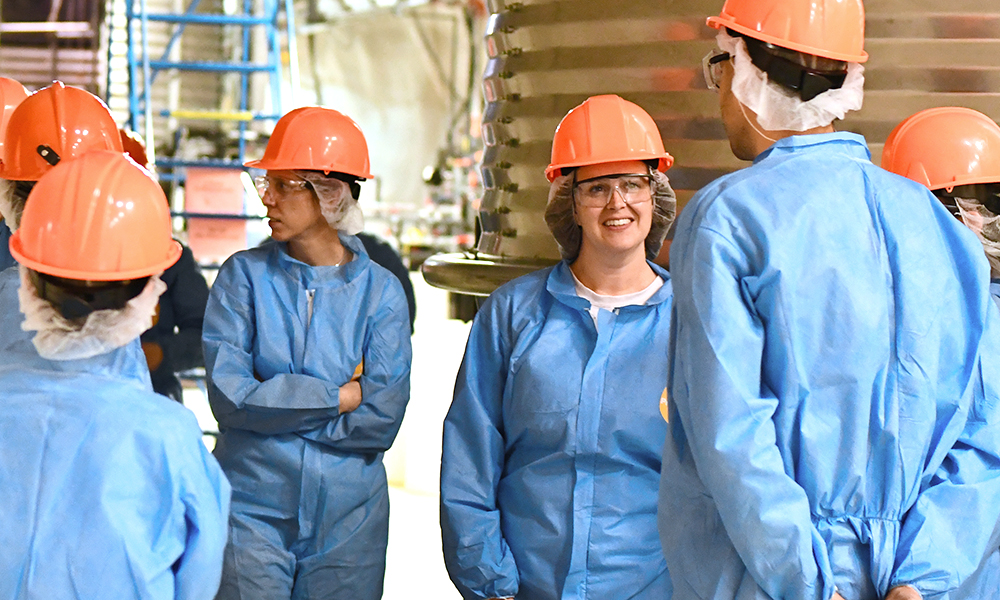Pioneering scientists from organizations around the world, including the Nuclear Waste Management Organization (NWMO), met recently in Ontario to explore the world of underground microbes.
They first attended a two-day workshop on subsurface science and exploration hosted by the Canadian Institute for Advanced Research (CIFAR), with additional sponsorship from the NWMO and University of Toronto. Following the workshop, the group visited SNOLAB, an advanced science laboratory located two kilometres below the surface in the Vale Creighton Mine near Sudbury, Ont.
The NWMO is involved in this research because of the need to understand the chemical, physical, and biological interactions that could occur in a deep geological repository.
“By participating in this research workshop, we can ensure our work is consistent with the state of science in this area,” said Dr. Jennifer McKelvie, a geoscientist at the NWMO, who attended both the workshop and the tour of SNOLAB. “This was a great opportunity for the world’s best minds to come together and talk about microbes in the subsurface, and go underground.”
The workshop was developed under the leadership of Barbara Sherwood Lollar, a University of Toronto professor in earth sciences, who receives research funding from the NWMO. She has been instrumental in discovering the age of isolated groundwater found in the Canadian Shield, and revealing new information about the microorganisms it may sustain.
The research methods being developed for low organic, low water, low biomass environments is not only relevant in designing a deep geological repository for used nuclear fuel, it may also be applicable to developing missions to Mars, Europa, Enceladus and the other planets and moons in our solar system, Dr. McKelvie said.

